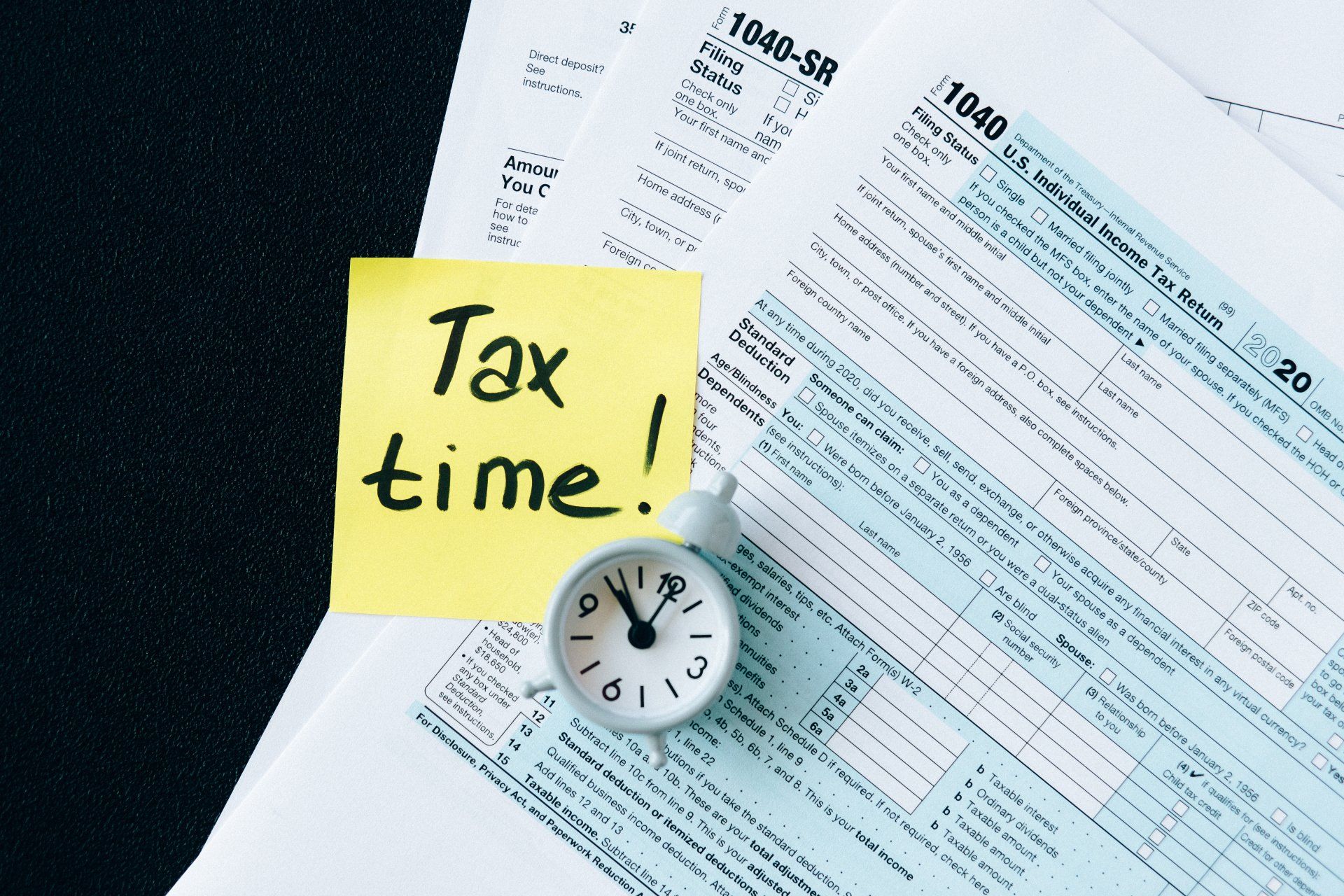Autumn Budget 2021 : A Round Up
Tax Simplified 4 You | 01 November 2021
The Chancellor, Rishi Sunak, delivered the Autumn Budget on 27 October 2021. The key announcements are summarised below.
Individuals
Dividends & National Insurance
The 1.25% Health and Social Care Levy will be introduced from 6 April 2022 via an increase to National Insurance Contributions, before becoming a freestanding levy from 6 April 2023.
From 6 April 2022, the dividend tax rates will also be increased by 1.25%. The basic rate dividend tax will increase to 8.75%, the higher rate dividend tax will increase to 33.75% and the additional rate dividend tax will increase to 39.35%. No increases or changes to the main or savings income tax rates.
Similarly, Employer’s NIC will increase from 13.8% to 15.05% and Employees’ NIC will increase from 12%/2% to 13.25%/3.25%. Self-employed NIC will increase from 9%/2% to 10.25%/3.25%.
It was also confirmed in Finance Act 2021/22 that section 455 tax (paid by companies on overdrawn director’s loan accounts) will also increase from 32.5% of the outstanding balance to 33.75% of the outstanding balance.
The increase in dividend tax and National Insurance rates, along with the previously increased corporation tax rates will have a significant impact on the tax position for employees, employers and those running businesses.
With an increase in the marginal tax rates on salaries and dividends, company owners may wish to look at alternative strategies for profit extraction such as Charging interest on amounts lent by the owner to the company; or Charging rent on property privately owned but occupied by the company.
The increase in National Insurance rates also makes salary sacrifice arrangements more attractive. Employers may wish to consider these for areas such as pensions and electric cars.
The income tax limits and personal allowance will remain at their current level until April 2026.
Business Rates
An additional 50% business rates discount (to a maximum of £110,000) for businesses in the retail, hospitality and leisure sectors. A new investment relief will mean that businesses will be able to make property improvements and pay no extra business rates for 12 months.
An exemption from business rates until 2035 for on-site use of renewable energy (such as solar panels). In addition, revaluations of property will now be made every three years from 2023.
The 50% business rates cut will no doubt be welcomed by the retail, hospitality and leisure sectors which were the hardest hit by the pandemic. We support any reliefs for business rates, although the detailed aspects of the new schemes are yet to be set out.
National Living Wage & Universal Credit
The Chancellor announced an increase to the current National Living Wage to £9.50 an hour with affect from 1 April 2022. Alongside this, the Universal Credit (‘UC’) taper relief has been cut from 63% to 55% and the threshold for when taper relief begins, known as ‘work allowance’, increased by £500.
Taper relief is the rate at which Universal Credit is withdrawn from the claimant, for every £1 they earn over the threshold. A claimant earning £100 over the work allowance will now keep an additional £8 of their universal credit. The Chancellor announced this change will come into effect as soon as possible and at the very latest by 1 December 2021.
Capital Gains Tax
Since 6 April 2020, UK tax resident individuals have been required to file a return (and pay the associated tax) on the sale of UK residential property which is not covered by a relief or exemption within 30 days of the disposal.
Since 2015 (or 2019 for commercial property) non-UK tax resident individuals have also been required to file a 30-day return on the sale of any UK property.
For any property sales which complete on or after 27 October 2021 the deadline for reporting and paying any associated tax is now 60 days, rather than 30 days. The changes also clarify that, for UK tax residents, where a gain arises in relation to a mixed-use property that only the portion of the gain that is the residential property gain is to be reported and paid.
Pensions
The earliest age at which most pension savers can access their pensions without incurring an unauthorised payments tax charge has increased from 55 to 57. This increase will have effect from 6 April 2028. This follows the original rise in pension age from 50 to 55 that took place in 2010.
A subsequent Finance Bill will introduce top-up payments to be made directly to low-earning individuals saving in a pension scheme using a net pay arrangement (starting in respect of contributions made in 2024-25 onwards).
Those schemes with a protected pension age, as well as schemes set up for firefighters, police and the armed forces will not be affected by these new rules, nor will people retiring for ill-health reasons. A consultation document was issued in February 2021 to seek views on this proposed change, but as only 117 people responded, this news may come as an unwelcome surprise to a lot of people.
Clearly, with increased life expectancy comes greater financial burden. Whilst the intention to encourage people to save longer, to have greater financial security in their retirement is commendable, the fact that the lifetime allowance remains stuck at £1,073,100 until 2026 negates this.
Additional contributions and growth over this additional two year period, could push more people into a lifetime allowance charge. This may currently seem like a problem for the wealthy but with the lifetime allowance frozen for five years, it could easily become an issue for those ‘middle-earners’.
Businesses
Basis Periods
Basis period reform for self-employed businesses and Partnerships is expected to commence from 6 April 2024, with a transitional year before this. This is a major change expected to raise an additional £820 million in the first full year.
Partnerships and businesses currently pay income tax and class 4 National Insurance on the profits for the accounting year which ends in the applicable tax year. For example, a business with an accounting period reference date of 30 April will be assessed in 2020/21 on the profits in the accounting year to 30 April 2020, with the tax being due by 31 January 2022.
For the 2024/25 tax year onwards, all sole traders and partners will be assessable on a tax year basis, i.e., the profits that arise between 6 April 2024 and 5 April 2025. The intention is to make the income tax system easier to administer following the move towards ‘Making Tax Digital’.
The equivalence of 31 March (to 5 April) will be retained so that businesses that draw accounts up to 31 March will have no change. There are transitional rules, so that for 2023/24, the business will declare all profit up to 5 April 2023, and any overlap profit will be used.
Note that the transition can result in more than 12 months’ profit being taxed in one tax year. Therefore, a spreading adjustment is allowed where the taxable profit in 2023/24 is larger, than it otherwise would have been without the rule change.
Corporation Tax
The main rate of corporation tax will remain at 19% until April 2023. From this date the main rate will increase to 25%, with a Small Profits Rate of 19% for profits not exceeding £50,000. There will be marginal relief for profits between £50,000 and £250,000 (these thresholds are proportionately reduced for the number of associated companies and short periods).
Close investment holding companies, including most family investment companies, will not qualify for the 19% rate.
Capital Allowances
Between 1 April 2021 and 31 March 2023 (extended in the Budget from 31 December this year), expenditure on new plant and machinery qualifies for a 130% super-deduction.
Expenditure on assets in the special rate pool (such as integral features in buildings and certain cars) will benefit from a 50% first year allowance.
The £1 million annual investment allowance (AIA) limit for expenditure on plant and machinery will be extended until 31 March 2023.
The benefits of this extension will be limited for many businesses, as companies are likely to claim the super-deduction in preference to the AIA (as it provides relief for capital expenditure at an enhanced rate of 130%).
However, the extension to the £1m limit will be still be welcomed by capital intensive LLPs and unincorporated businesses that don’t qualify for the super deduction, or for companies purchasing assets which qualify for AIA but would not otherwise qualify for the super deduction (such as second-hand assets).
Research & Development
From April 2023, Research & Development (R&D) Tax Relief will be extended to include data and cloud accounting costs. In addition, measures to target abuse and improve compliance will be introduced.
These changes will be legislated for in Finance Bill 2022/23 and will take effect from April 2023. Further details of the changes and next steps for the review will be set out in due course.
VAT and indirect taxation
VAT registration threshold will remain at £85,000 until 31 March 2024.
50% business rate discount for companies in the retail, hospitality and leisure sectors, up to a maximum of £110,000.
From 1 April 2022, Residential Property Developer Tax will be introduced at 4% for businesses with profits over £25 million.
Get in touch if you have any questions regarding how these changes may impact your business.









